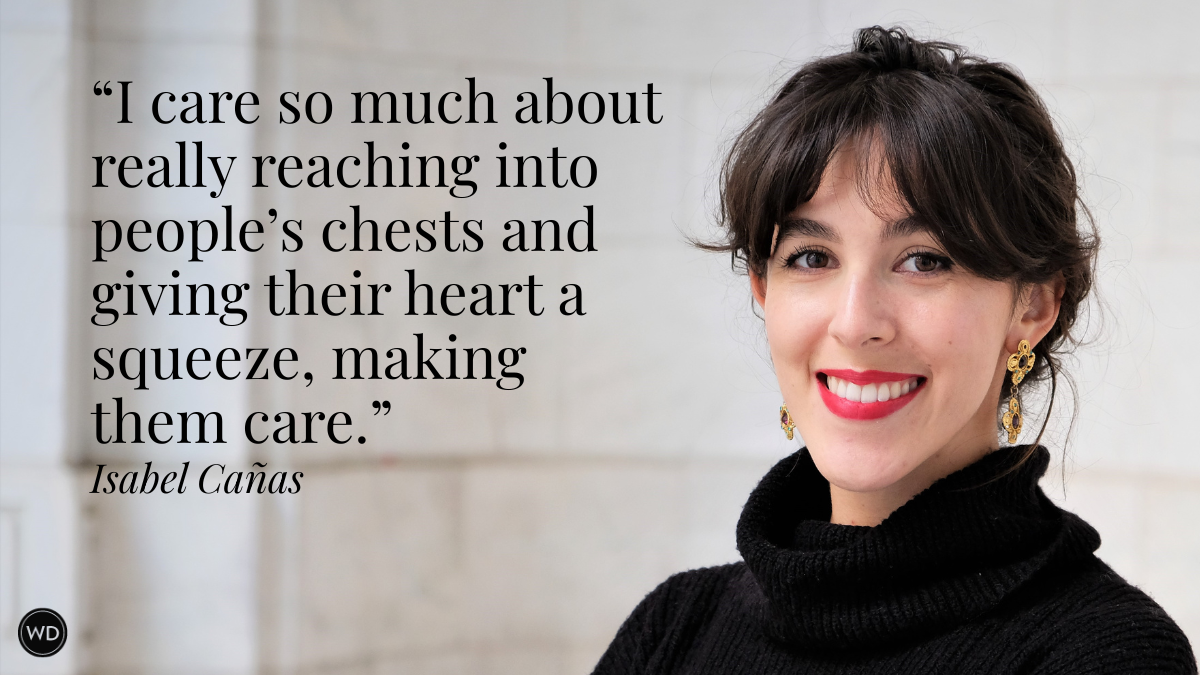David Jackson Ambrose: On Balancing Magic and Practicality
Novelist David Jackson Ambrose discusses the initial themes he wanted to explore in his latest novel, A Blind Eye, what the editing process was like, and how his books always surprise him in the end.
David Jackson Ambrose’s debut novel, State of the Nation (2018), was selected as a finalist for the 2019 Lambda Literary Award for gay fiction.
David describes his work as “a focus on marginalized people and the ways identities are shaped by a confluence of the prison industrial complex, the mental health factory, (both of which he refers to as neo-plantations) and police state apparatus as it collides with gender, sexuality, and the construct of race to impose disability and hierarchy as part of the design of American capitalism.”
David’s new novel, A Blind Eye (2021, NineStar Press), explores the gradations of domestic abuse in both parental and same-sex relationships and the opacity of perceptions of race.
He is a graduate of the University of Pennsylvania (Africana Studies) and holds an MA from Saint Joseph’s University and an MFA from Temple University.
In this post, Jackson Ambrose discusses the initial themes he wanted to explore in his latest novel, A Blind Eye, what the editing process was like, how his books always surprise him in the end, and more!
****
Name: David Jackson Ambrose
Title: A Blind Eye
Publisher: NineStar Press
Release date: April 5, 2021
Genre: Historical/literary fiction
Elevator pitch for the book: A picaresque novel where the “adventure” is an interior journey of the post-traumatic effects of domestic violence and capitalism.
Previous titles by the author: Cacophony and Baby Trade.
Amazon
[WD uses affiliate links.]
What prompted you to write this book?
The voices in my head. Sometimes when you let the words out onto paper, the voices are silenced for a little while.
How long did it take to go from idea to publication?
About two years. It started as a piece on the gentrification of a certain way of life for poor, and gay, and people of color, how "modernization" and the move towards a more gay-friendly society has, in fact, erased a certain way of life, especially if you’re poor and black, as formerly "ghettoized" neighborhoods were razed to make them into tourist traps or weekend spots for suburban middle-class folks. But the characters began to take over, and also, beta readers and my publisher kept telling me that the sections focusing on the bars and bathhouses, the clubkids and the drug dens, were not interesting to them and that reading those sections knocked them out of the story.
The initial (draft) story didn’t take much more than a year. After that, querying was a very long process. A Blind Eye is not what one would consider a mainstream (saleable) story. The protagonists are not who we usually see in mainstream stories. Even though the experiences, hopes, and dreams these people have are the same ones that many of us have, in my opinion.
Were there any surprises or learning moments in the publishing process for this title?
Sometimes I had to eliminate beauty, magic, in favor of practicality. And that KILLED ME! There were passages of the original that described how scent and sound floated on the air, through the vents, and communicated to characters who were not in the scene, and other passages where the dogs, Mitzi and Pretzel, were able to intuit the emotions people in other locations experienced. Does that sound crazy? My editor did not find those passages nearly as magical, nor beautiful as I did. She said these things were not possible unless the character in the scene knew the others were experiencing them. I had to get rid of a lot of things like that. I thought those were things that made the storytelling unique. But I understood, later, that the book lacked a certain "lean-ness" with those sorts of flourishes.
Were there any surprises in the writing process for this book?
For me, the surprise is always the end product, because it never finishes the way that I thought it would when I began. For A Blind Eye, the ending sort of catalyzed as a reflection of our current moment. It took place in the mid-1990s, however, while writing, I witnessed the recordings of the murder of George Floyd, Ahmaud Arbury, Rayshard Brooks, Breonna Taylor. Actual footage of a man’s life being taken. George Floyd’s spirit literally left his body and millions of us witnessed it happen. This reminded me of how little has changed related to racial disparities in this country. And the construct of race, which only exists as it includes racism is the very foundation of our society as we know it. It affects all of us. It is the reason the character Alise has chosen to live her life pretending to be someone she is not.
What do you hope readers will get out of your book?
A good, enjoyable, sometimes raunchy, sometimes hilarious read. The rest of what a reader gets is out of our hands. Each of us gets something unique from every book we read. That is the magic.
If you could share one piece of advice with other authors, what would it be?
Get the hell out of the house and do a little LIVING. If not for other authors, then certainly, it would do me a world of good.








